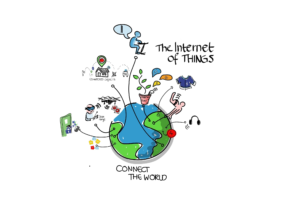How Biotech Is Pushing the Boundaries of Medicine and Healthcare
How biotechnology is pushing the boundaries of medicine and healthcare is a topic of significant interest and importance. Biotechnology is rapidly transforming the landscape of medical science, presenting an array of groundbreaking advancements that promise to redefine what’s possible within the realm of healthcare. The field has already demonstrated remarkable feats, from personalized treatments tailored to individual genetic profiles to innovative drug discoveries. This article aims to explore the diverse ways biotechnology is revolutionizing healthcare, addressing current challenges and examining future possibilities. We’ll delve into specific applications, the potential benefits and risks, and the broader societal implications of this powerful field. The structure of the article is as follows: first, we will explore the core concepts of biotechnology and its evolution. Then, we’ll examine specific advancements in various areas of medicine, and next we will investigate the practical challenges and ethical considerations associated with the introduction of these innovative therapies. Finally, we will conclude by discussing the future trajectory of biotechnology in shaping a healthier future.
Understanding the Foundation of Biotechnology
Defining Biotechnology
Biotechnology, a rapidly evolving field, leverages biological systems, organisms, or derivatives to develop or create diverse products and applications. It spans a wide range of disciplines, including genetic engineering, pharmaceutical science, and biomanufacturing. It harnesses the power of living organisms, often manipulating their genetic material, to create novel products, therapies, and diagnostic tools. This approach to creating and improving products is often contrasted with traditional methods, where biological systems are used to produce what already exists—while biotechnology can create and produce novel products and processes. The core principle lies in understanding the biological mechanisms and employing them in creative ways.
The Historical Context and Evolution of Biotechnology
Biotechnology’s roots trace back to ancient times, with fermentation processes used in food production long before modern scientific understanding. From the ancient practice of brewing beer to modern methods of genetic engineering, biotechnology has undergone a dramatic transformation driven by advancements in molecular biology and genetic engineering. The emergence of recombinant DNA technology in the late 20th century marked a pivotal moment, allowing scientists to manipulate genes with unprecedented precision and create entirely new biological entities. This pivotal development spurred innovations across various sectors, fostering an increasingly intertwined relationship between biology and technology.
Biotechnological Advancements in Disease Treatment
Personalized Medicine: Tailoring Treatments to Individual Needs
Personalized medicine, often a core focus of biotechnology, is rapidly gaining traction. This approach customizes treatments based on an individual’s unique genetic makeup. By analyzing an individual’s DNA, doctors can identify genetic predispositions to certain diseases, tailor medication dosages, or predict treatment response. This is significantly different from the one-size-fits-all approach previously used. Pharmaceutical companies are adapting to this new trend, investing heavily in genomic sequencing and diagnostic tools to facilitate more precise healthcare and improved patient outcomes.
Gene Therapy: Correcting Genetic Defects
Gene therapy holds significant promise for treating genetic disorders. It aims to replace or modify faulty genes responsible for diseases. Early successes in treating certain genetic conditions highlight the potential for gene therapy to revolutionize treatment of diseases. However, significant challenges remain, including concerns about the safety and efficacy of gene editing technologies, delivery methods and long-term effects.
Addressing the Challenges and Ethical Considerations
Safety and Efficacy Concerns
As with any emerging technology, biotechnology faces crucial safety and efficacy considerations. Thorough research and rigorous testing are essential to ensure the safety of new therapies and prevent potential adverse effects. Stringent regulatory frameworks and ethical guidelines are critical to manage potential risks associated with these powerful tools. Ensuring that these therapies are both safe and effective is paramount. Safety assessments of gene therapies and other new biological entities are performed in multiple stages to minimize risks and maximize efficacy.
Ethical Implications of Genetic Engineering
The precise manipulation of genes raises significant ethical concerns, particularly in genetic engineering. Ethical debates often revolve around the use of these powerful tools for enhancements rather than solely for treatment. The implications for human evolution and societal well-being are paramount and need careful ethical evaluation. Public dialogue and stringent ethical frameworks are needed to navigate these complex issues and ensure responsible development and application.
The Future of Biotechnology in Healthcare
Innovations in Diagnostic Tools
The development of more accurate and accessible diagnostic tools is a crucial area for biotechnology. More advanced and detailed diagnostic tools may allow for earlier disease detection and better prediction of disease progression, leading to more effective preventative care. This is vital in managing and treating numerous conditions.
Advancements in Drug Discovery and Development
Biotechnology is transforming drug discovery and development, accelerating the process and enhancing the success rates of drug development. High-throughput screening techniques and machine learning are helping researchers discover new drug candidates with targeted effects. This advancement is further driving innovations and improving efficacy in multiple areas of medicine.
Related Post : The Role of Green Technology in Combating Climate Change
Impact on the Pharmaceutical Industry
Streamlining Production Processes
Biotechnology is also streamlining the pharmaceutical manufacturing process and improving the efficiency of drug production. Techniques like recombinant DNA technology allow for the mass production of therapeutic proteins and other valuable compounds, with the potential to drastically reduce manufacturing costs and improve availability of life-saving drugs.
Fostering Collaboration and Innovation
The collaborative efforts between researchers and pharmaceutical companies are crucial to foster innovation and bring these advancements to patients. Partnerships between academic institutions, pharmaceutical companies, and biotechnology firms are driving breakthroughs. Collaboration and strong industry-wide partnerships are accelerating the translation of groundbreaking discoveries into treatments that are effective and safe.
Ethical Considerations and Public Perception
Societal Impact
The rapid advancement of biotechnology has significant implications for society. From the development of new drugs to the use of gene editing technologies, the societal impact of these advancements is profound and requires careful consideration and proactive communication. Public dialogue and engagement are necessary to shape the responsible development and application of biotechnology. Open discussion and transparent communication are critical in fostering public trust and understanding.
Conclusion
This article has explored various aspects of biotechnology’s impact on healthcare, from basic concepts to emerging applications and future implications. The advancements are reshaping the future of medicine and healthcare by addressing some of the world’s greatest health challenges. Biotechnology is rapidly transforming healthcare, making personalized medicine a reality. Further advancements, including gene therapy, improved drug discovery, and enhanced diagnostic tools, promise even greater advancements in healthcare. The ethical considerations and public dialogue are crucial for responsible and safe innovation and development.
In conclusion, biotechnology is revolutionizing medicine and healthcare, offering innovative solutions to some of the world’s most pressing health challenges. From personalized medicine to gene therapy, the possibilities are seemingly limitless. To stay abreast of these advancements, I encourage you to explore reputable sources of information and delve deeper into the specifics of biotechnology’s impact on your areas of interest in healthcare. This ongoing evolution promises to bring about a healthier future for all.
Share this content:














17 comments